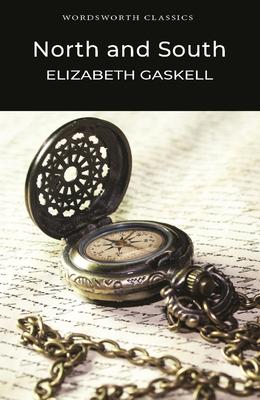
Zustellung: Mi, 22.01. - Di, 28.01.25
Versand in 3-4 Wochen
VersandkostenfreiBestellen & in Filiale abholen:
From her home ground, her father's comfortably middle-class living in Hampshire and her aunt's establishment in Harley Street, Margaret is exiled to the ugly northern industrial town of Milton. Surprisingly, her social consciousness awakens. It is intensified by a relationship with the local mill-owner, Thornton, that combines passionate attraction with fierce opposition. The novel explores the exploitation of the working class, linking the plight of workers with that of women and probing the myth and reality of the 'north-south divide'.
Produktdetails
Erscheinungsdatum
05. April 1993
Sprache
englisch
Seitenanzahl
448
Autor/Autorin
Elizabeth Gaskell
Verlag/Hersteller
Produktart
kartoniert
Gewicht
293 g
Größe (L/B/H)
198/126/30 mm
ISBN
9781853260933
Entdecken Sie mehr
Bewertungen
LovelyBooks-Bewertung am 02.07.2023
What happens when your father starts doubting the church and it is the middle of the Victorian era in Britain? That is what Margaret goes through in "North and south" by Elisabeth Gaskell.Margaret and her parents move to the industrial south after her father quits the church. There, she is confronted with child labour, illness and poverty, but furthermore with prejudices and ignorance. When her family falls apart, she needs to find her own place in society."North and South" contains many things I admire about Victorian classics. The detailed descriptions of social standings, poverty and severe illnesses were common among contemporary authors such as Austen, Brontë and Dickens. Gaskell goes further by outlining the social economics of the time. She does a great job by sharing Margaret's thoughts about the mill owners and the slavery going on. Margaret is the person I admire the most. She lost both her parents and has to see her brother getting taken away, yet she is set to change her mind about industry and the mills. As I read the story through Margaret's eyes, I can only guess that Thornton changed in several points as well. They seem to fit each other and proof to be a good combination when it comes to opinions.All the good things about the book do, however, have a counterpart. I know times were hard and Gaskell described it quite realistic, but I wish she would have showed possible solutions- like in Jane Eyre and Agned Grey. There is little mention of what Margarete will actually change and I miss the revolutionary part of it. While I enjoyed reading the novel and found great pleasure in it, I think that someone with no prior knowledge to Victorian literature in Britain would have difficulty understanding it. Gaskell criticises social standards, the working conditions and the general health Britain had to go through in the 19th century. Hence, I would advise such readers to read a guide to Victorian England (any would do) in advance.
LovelyBooks-Bewertung am 13.11.2019
Gehört zu meinen Lieblingsklassikern.









